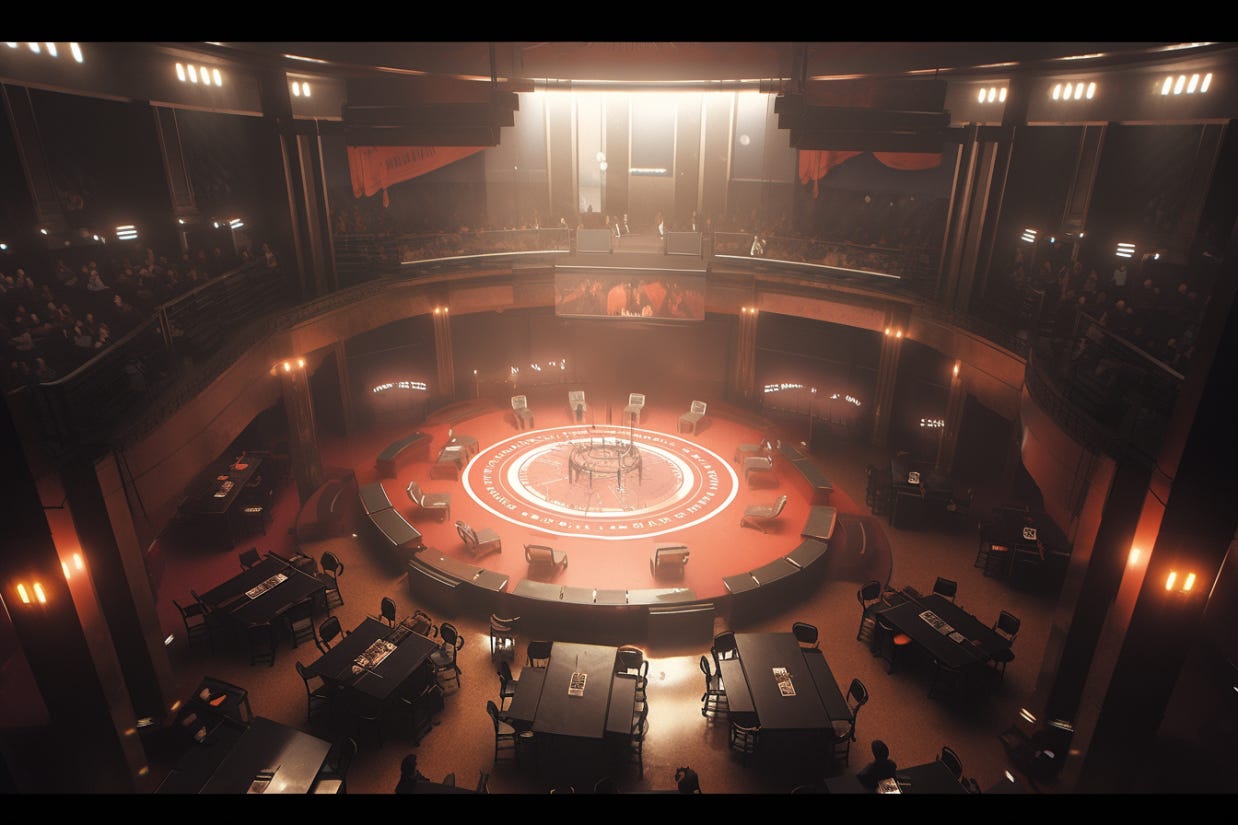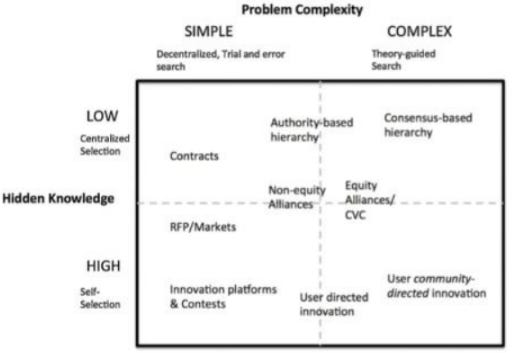Governance is the power to organize (at least some of the) economic resources in social systems. Therefore, governance is intrinsically valuable.For example, governance can set the incentive policy of token economies, thereby determining who gets rewarded. The policy has ripple effects throughout the system, influencing the individual decisions of stakeholders, from which the macro behavior of the system emerges.
Other governance responsibilities can include decisions on which products to develop and where to “tax” value creation (fee switch).
Overall, governance plays a key role in socio-economic systems such as crypto, as it touches multiple areas like tokenomics, the product, or the business model.
The question now becomes: How to organize governance so it serves the protocol’s mission?
Pros and Cons of Decentralizing Governance
In crypto, we tend to have a bias towards decentralization. While we generally see this as a positive since it helps build more resilient and equitable processes, we also have to consider the challenges. By showing the limitations of decentralized governance, we can better set our expectations - the desired end state (the point on the decentralization spectrum) - and derive a workable path toward our end goal.
Pros
Gives power to the people. Empowered community members are incentivized to contribute to the success of the product, for example by acting as evangelists.
Governance gives utility (intrinsic value) to the token
Considering the perspectives of multiple, diverse stakeholders who are motivated to provide valuable input can lead to better outcomes (task-dependent).
Not having to rely on a core team decreases the regulatory attack surface. However, if not set up well, DAO contributors might be legally liable as well. It’s important to not only decentralize socially, but also technologically. For instance, governance votes should be implemented automatically, not get pushed live manually by one person.
Cons
Slows down decision-making, which is especially negative for projects in their early stages and within a dynamic industry like crypto.
Governance opens up new attack vectors for others to extract value. For example, transparent governance processes may provide competitors with detailed insights into finances, future products, partnerships, etc. In the worst case, a competitor might be able to acquire the majority of voting power.
Requires a lot of effort to do right, including initial planning, setting up processes and resources, educating community members, moderating discussions, setting goals and tasks for contributors to work on, actively bridging information between team and community, refining processes, all while progressing towards the desired decentralization state.
Progressive Decentralization
As the previous section shows, decentralizing governance is a delicate task that requires a good amount of resources. Additionally, only one mistake might cause long-lasting damages, meaning the value at risk is high for every major decision.
Therefore, many teams follow the concept of progressive decentralization.
With progressive decentralization, the core team transitions from being the visible hand to the invisible hand over time.
Progressive decentralization is a slow process where the team initially remains a critical piece in decision-making, acting as a guide to the community. This power has to be handled well. Even though the team may remain the final decision-maker, others can still be empowered to step up and significantly influence results. For example, the team shouldn’t drive governance discussions early on but let the broader community explore different viewpoints first. Studies have shown that discussions end up with different outcomes depending on where they started. Group thinking reduces decision quality and should be minimized as much as possible. The core team with its social status can easily influence others.
It’s as much about when and how the team exerts its power, as it is about how much power they hold.
The goal of progressive decentralization is to reduce the value at risk at the beginning and expand community empowerment to more critical decisions as everyone learns along the way. Progressive decentralization also aligns with the idea that centralized decision-making is faster, which is more important at the beginning of a project, while it can get slower over time.
With progressive decentralization, governance becomes more valuable over time. At first, only people who identify with the company’s mission will contribute as there’s not much value to extract. This helps create an aligned community. A mission-driven community culture is needed to reduce self-serving behavior once governance progresses, the contributor community scales and more value can be extracted.
We have written about community building before.
The main challenge of progressive decentralization is that humans are generally unwilling to give up power once they have it. Hence, a (autonomous) predetermined process should be in place to dilute power over time.
What could progressive decentralization look like?
Step 1️⃣: Take feedback from the community and set aside a certain percentage of the team’s resources to work on implementing it. Leave some tasks open for the community to work on, for example in the form of bounties. These tasks should be non-critical, such as content marketing.
Step 2️⃣: Broaden the range of tasks for the community. This may require building working groups where contributors work together to provide structured feedback on more complex topics or take on multifaceted tasks.
Step 3️⃣: Open up governance proposals and voting to the community. The team might still hold most of the governance power at the start but gets diluted over time. Execution is still done manually by the team, which effectively gives them a veto right.
Step 4️⃣: Automatic on-chain execution of proposals. Development is driven by the community.
Decentralized governance doesn’t mean everyone gets to participate in everything
While some topics benefit from as many perspectives as possible, others might require a niche skill set. One goal of governance is to organize the efforts of the community in the most effective ways. For example, one might make use of working groups for complex topics, while opening up non-critical bounties to everyone. To account for the decentralization logic, transparency, open-source code, delegate voting, and other tools should be employed to balance effectiveness, efficiency, and resilience.
Crowdsourcing theory can provide us with input on where a broad engagement of the community makes sense - and where it doesn’t. The more hidden knowledge and the simpler the problem, the more suitable is crowdsourcing.
Hidden knowledge: If it’s not known where the knowledge to solve a problem is, opening it up to everyone to self-select and bring in their know-how is the way to go. But it’s important to incentivize the right people to reveal themselves.
Simple, well-structured problems: Allow autonomous actors to use their knowledge to individually evaluate choices. No coordination is needed. Complex problems on the other hand have interdependencies, meaning small shifts can lead to big changes in outcomes, therefore requiring theory-based understanding of complex interactions.
Conclusion
Governance plays a pivotal role in shaping socio-economic systems. It influences incentive policies, product development decisions, and the overall business model, making it a critical element in achieving a project's mission.
Decentralizing governance has its own set of pros and cons, with progressive decentralization emerging as a viable approach to balance decision-making efficiency and community involvement. By gradually transitioning from centralized control to community empowerment, teams can reduce risks and foster an aligned, mission-driven community culture. The key challenge lies in diluting power over time while ensuring effective organization of knowledge and problem-solving methods to achieve better outcomes.
Setting up governance is a broad task, if you are looking for help setting up a DAO, governance or decentralize work through your community, please reach out to us here at Deus Ex DAO and our advisors would be happy to help you with any governance related questions.







